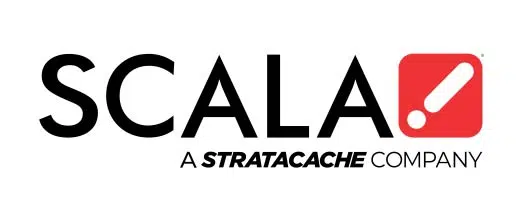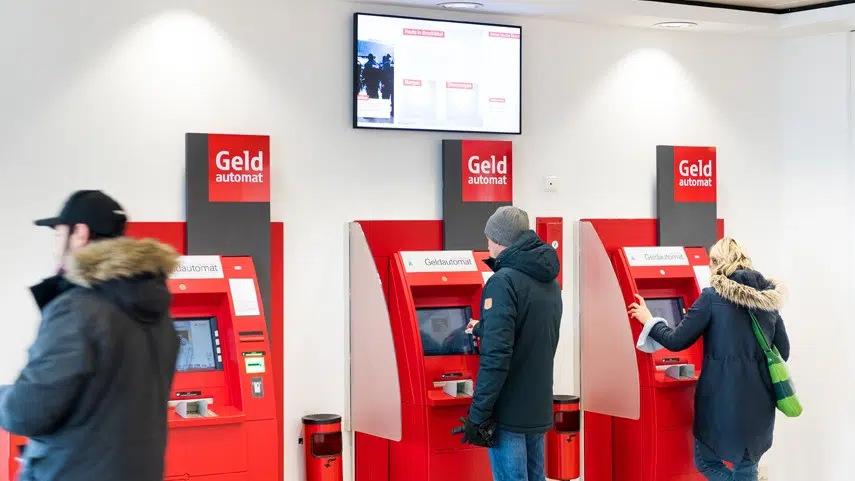Dr. Sulaiman Al-Habib Medical Group Goes Digital with Scala
Dr. Sulaiman Al-Habib Medical Group (HMG) is currently rolling-out a sizeable digital signage network across six of its medical facilities in the region. Scala partner Comm IT was responsible for the installation.
Project summary
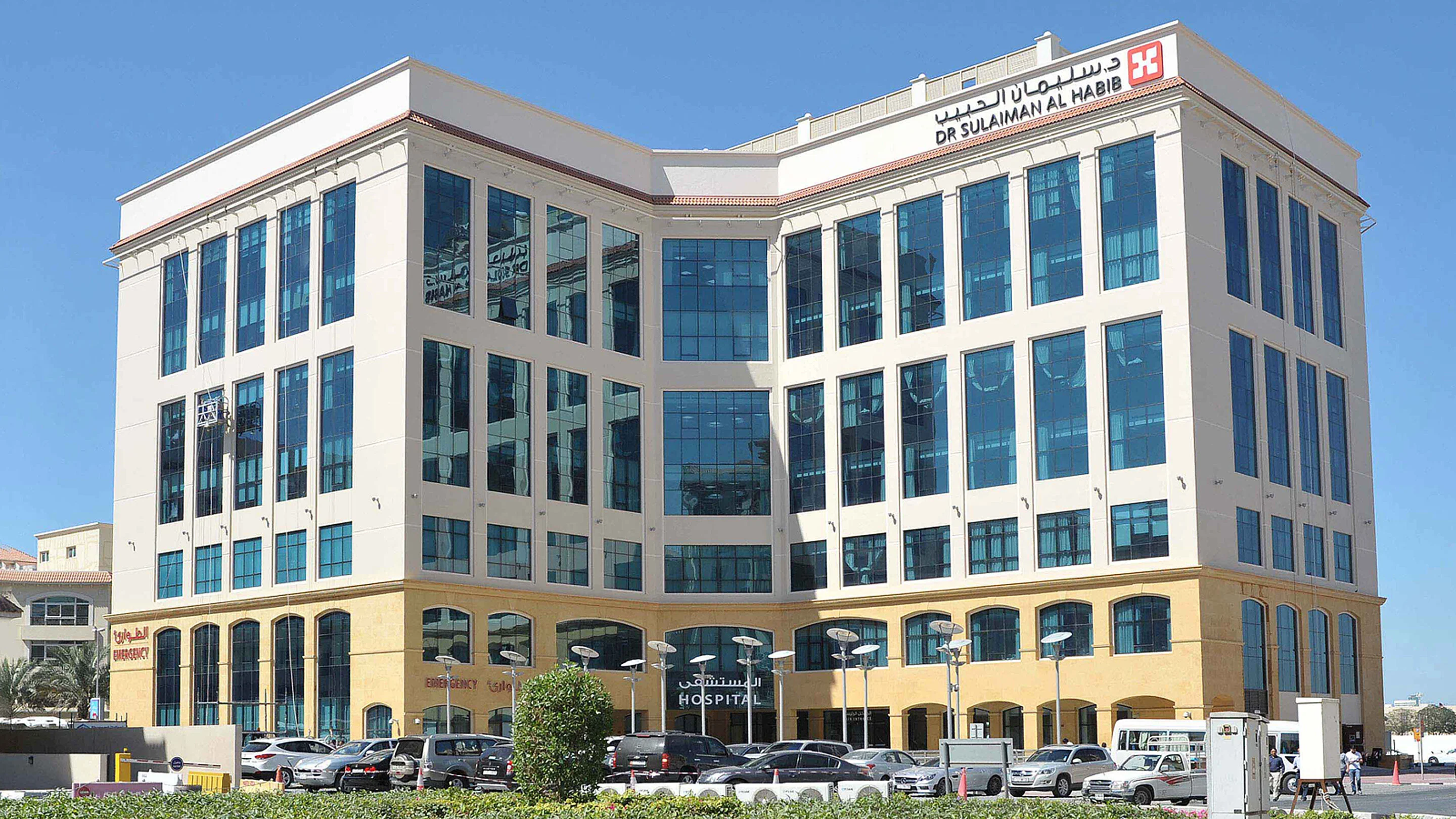
Dr. Sulaiman Al-Habib Medical Group Goes Digital with Scala
Project Summary
Scala underpins large-scale digital signage network for the biggest private healthcare provider in the Middle East: Dr. Sulaiman Al-Habib Medical Group (HMG). The group, which currently operates 14 medical facilities across Saudi Arabia, the United Arab Emirates (UAE) and Bahrain, has chosen Scala technology as the backbone to its very first digital communications project. The completed network will display digital content on over 500 screens in six locations across three different countries in the Middle East.

At a Glance
01.
Scala underpins large-scale digital signage network for the biggest private healthcare provider in the Middle East: Dr. Sulaiman Al-Habib Medical Group (HMG).
02.
The solution helps HMG meet the group’s objective of running a fully digitised hospital.
Large-Scale Medical Roll-Out
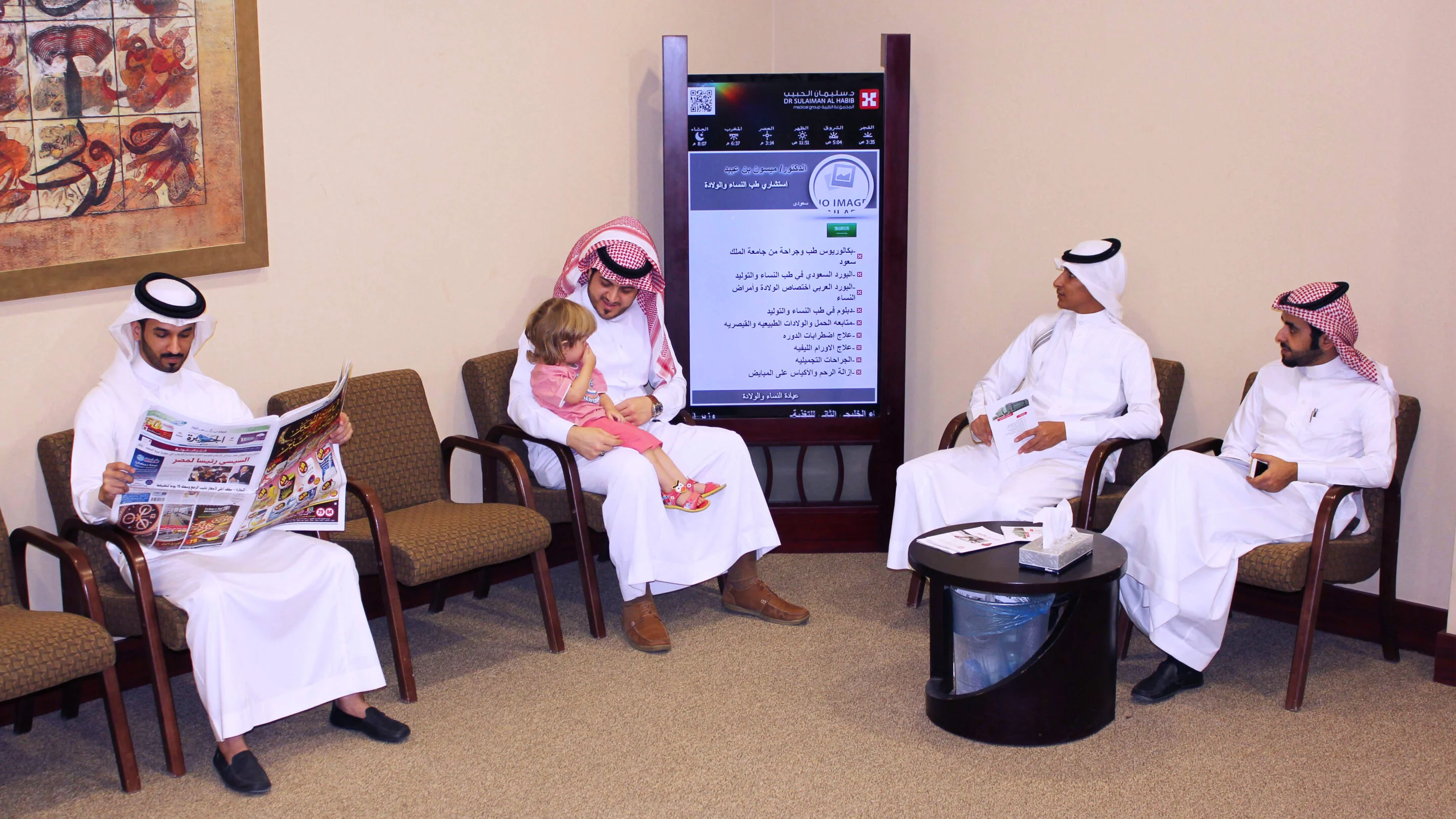
The group, which currently operates 14 medical facilities across Saudi Arabia, the United Arab Emirates (UAE) and Bahrain, has chosen Scala technology as the backbone to its very first digital communications project. The HMG group is deploying a large number of screens in the patient waiting area and at the nurse stations as part of a large-scale digital signage network at its facilities.
The network will be used to showcase the group’s overall medical capabilities, which include seven hospitals and six medical centers as well as one of the largest private medical cities in Saudi Arabia. It will also be used internally for the efficient management of patient information by hospital staff.
The HMG is one of the most advanced examples of the use of technology in the healthcare environment. The group has achieved a completely paperless environment and is managing all hospital operations in an electronic manner, in order to meet the group objective to improve the quality of services and to eliminate human errors by automating hospital processes.

Large-Scale Medical Roll-Out
Dr. Sulaiman Al-Habib Medical Group (HMG), the largest private provider of comprehensive healthcare services in the Middle East, is currently rolling-out a sizeable digital signage network across six of its medical facilities in the region. Scala partner Comm IT was responsible for the installation.
The group, which currently operates 14 medical facilities across Saudi Arabia, the United Arab Emirates (UAE) and Bahrain, has chosen Scala technology as the backbone to its very first digital communications project. The HMG group is deploying a large number of screens in the patient waiting area and at the nurse stations as part of a large-scale digital signage network at its facilities.
The network will be used to showcase the group’s overall medical capabilities, which include seven hospitals and six medical centers as well as one of the largest private medical cities in Saudi Arabia. It will also be used internally for the efficient management of patient information by hospital staff.
The HMG is one of the most advanced examples of the use of technology in the healthcare environment. The group has achieved a completely paperless environment and is managing all hospital operations in an electronic manner, in order to meet the group objective to improve the quality of services and to eliminate human errors by automating hospital processes.
Communicating to Patients and Nurses
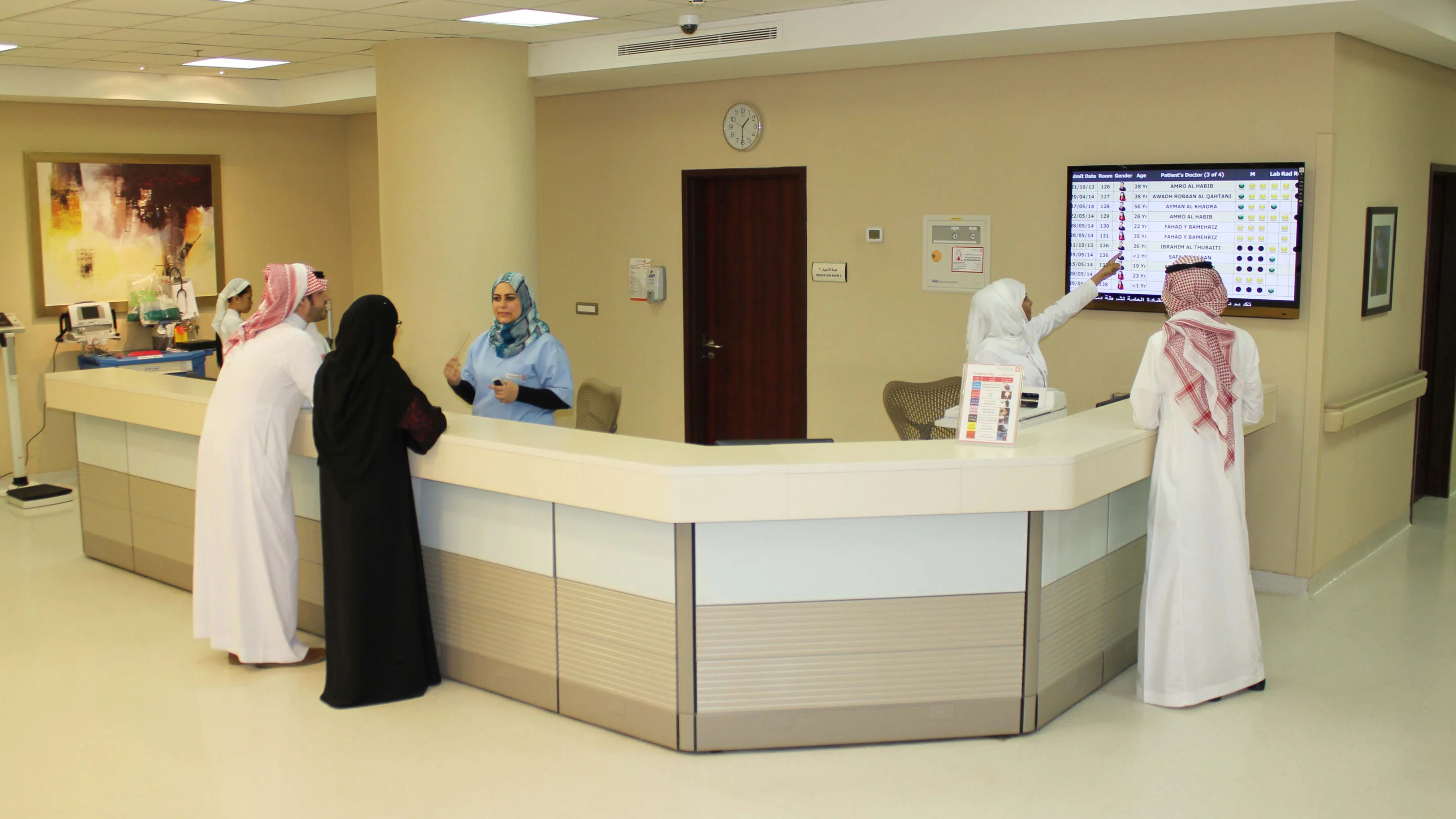
At four more sites an extra 278 screens will be added to the network: Olaya and Rayan in Riyadh (Saudi Arabia) and two locations in Dubai and Qassem. The project will be completed by the roll-out of 120 more screens at the group’s Al-Suwaidi location in Riyadh. The screens used at the Takhassusi location are a mix of 55” landscape and 52” portrait displays, driven by 15 Scala players. The HMG is also using Scala Designer to create templates for every element of the signage network.
Content for the ‘Waiting Area’ screens and the white board screens at the ‘Nursing Station Area’ are managed through web services integration with all backend applications, including VIDA (HIS) which shows Lab results, Radiology, Nurse Call and Meal Orders online. These types of integration capabilities are aligned with the HMG’s objective to eliminate all manual work, improve quality and eliminate human errors.
Communicating to Patients and Nurses
The digital signage network at the HMG group is being rolled out in stages. During the first phase, over 48 screens were rolled out at the Takhassusi hospital in Riyadh, to display hospital information in the waiting areas and patient information and alerts at nursing station zones.
At four more sites an extra 278 screens will be added to the network: Olaya and Rayan in Riyadh (Saudi Arabia) and two locations in Dubai and Qassem. The project will be completed by the roll-out of 120 more screens at the group’s Al-Suwaidi location in Riyadh. The screens used at the Takhassusi location are a mix of 55” landscape and 52” portrait displays, driven by 15 Scala players. The HMG is also using Scala Designer to create templates for every element of the signage network.
Content for the ‘Waiting Area’ screens and the white board screens at the ‘Nursing Station Area’ are managed through web services integration with all backend applications, including VIDA (HIS) which shows Lab results, Radiology, Nurse Call and Meal Orders online. These types of integration capabilities are aligned with the HMG’s objective to eliminate all manual work, improve quality and eliminate human errors.

How Scala Met the Challenge
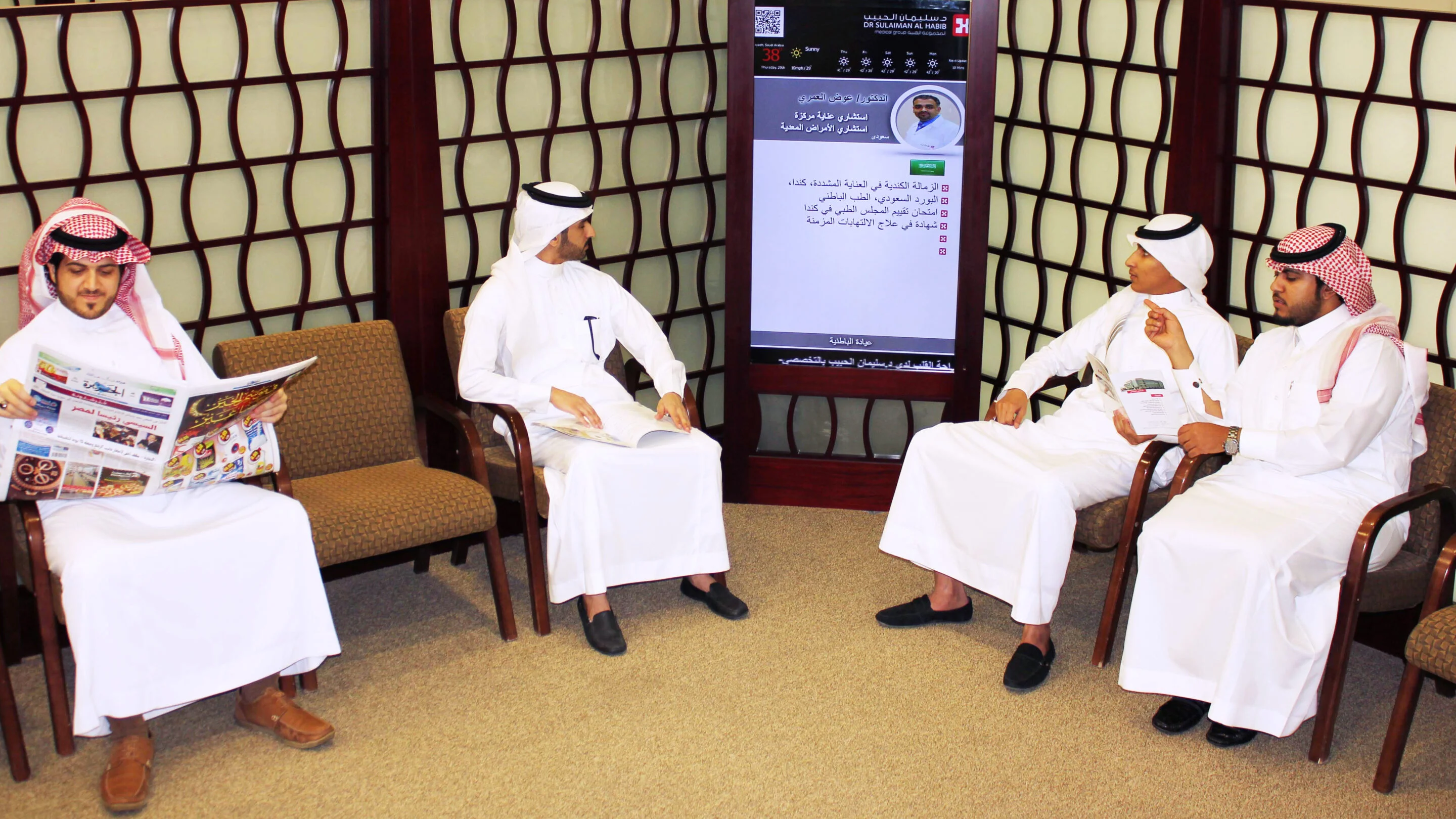
Scala digital signage technology has been crucial in supporting this strategy, as it enables patients to get a global understanding of the large HMG footprint in a short space of time within the waiting room. It’s also key to a smoother functioning of the internal hospital processes, which makes the life of medical personnel easier.
“Having put three different options through an extensive selection process, which included proof of concept, the HMG chose a solution based around Scala technology. We made that choice because of Scala’s intuitive and flexible players and templates that are capable of integrating with our backend solution, based on worldwide technologies and standards” said Eng. Abdulelah AlMayman, Vice president for Information Technology at HMG. The Scala templates enable the HMG to reliably and centrally manage all content on its extensive network across a large number of sites. In the ‘Waiting Area’, the templates present information about the doctors on duty and their medical capabilities alongside general hospital information.
The templates for the white board screens at the ‘Nursing Station Area’ display information about patients and their assigned physicians, alongside meal order status, lab results, doctor referrals and information around the length of each patient’s hospital stay.
Once the network is rolled out, the HMG group hopes to extend its use in the waiting areas to the deployment of external marketing campaigns for medical suppliers. It also hopes to display content from the group’s social media accounts on Twitter and YouTube to keep patients entertained.

How Scala Met the Challenge
In addition to its ambition to run a fully digitised hospital, HMG also aimed to deliver to patients in the waiting area a comprehensive overview of the group’s medical capabilities and doctor profiles within the first 5 minutes of their arrival. It also wanted to provide the best technology to its medical staff, to make their working life easier and paperless. HMG also wanted to improve healthcare services through the delivery of timely alerts and notifications to medical staff.
Scala digital signage technology has been crucial in supporting this strategy, as it enables patients to get a global understanding of the large HMG footprint in a short space of time within the waiting room. It’s also key to a smoother functioning of the internal hospital processes, which makes the life of medical personnel easier.
“Having put three different options through an extensive selection process, which included proof of concept, the HMG chose a solution based around Scala technology. We made that choice because of Scala’s intuitive and flexible players and templates that are capable of integrating with our backend solution, based on worldwide technologies and standards” said Eng. Abdulelah AlMayman, Vice president for Information Technology at HMG. The Scala templates enable the HMG to reliably and centrally manage all content on its extensive network across a large number of sites. In the ‘Waiting Area’, the templates present information about the doctors on duty and their medical capabilities alongside general hospital information.
The templates for the white board screens at the ‘Nursing Station Area’ display information about patients and their assigned physicians, alongside meal order status, lab results, doctor referrals and information around the length of each patient’s hospital stay.
Once the network is rolled out, the HMG group hopes to extend its use in the waiting areas to the deployment of external marketing campaigns for medical suppliers. It also hopes to display content from the group’s social media accounts on Twitter and YouTube to keep patients entertained.
About Dr. Sulaiman Al-Habib Medical Group (HMG)


About Dr. Sulaiman Al-Habib Medical Group (HMG)
HMG is one of the largest providers of comprehensive healthcare services in the Middle East; as it is currently operating 14 Medical Facilities across Saudi Arabia, United Arab Emirates and Bahrain, including 7 Hospitals and 6 Medical Centers and developing one of the largest private medical cities in Saudi Arabia.


Related Case Studies
Related Case Studies
Hamburger Sparkasse Launches “Branch of the Future” with Scala and Pilot Screentime
Hamburger Sparkasse Launches “Branch of the Future” with Scala and Pilot Screentime Working with Scala, a full solutions partner, to create an easy to use, integrated system which allows messages to be created, scheduled and displayed from a variety of...
